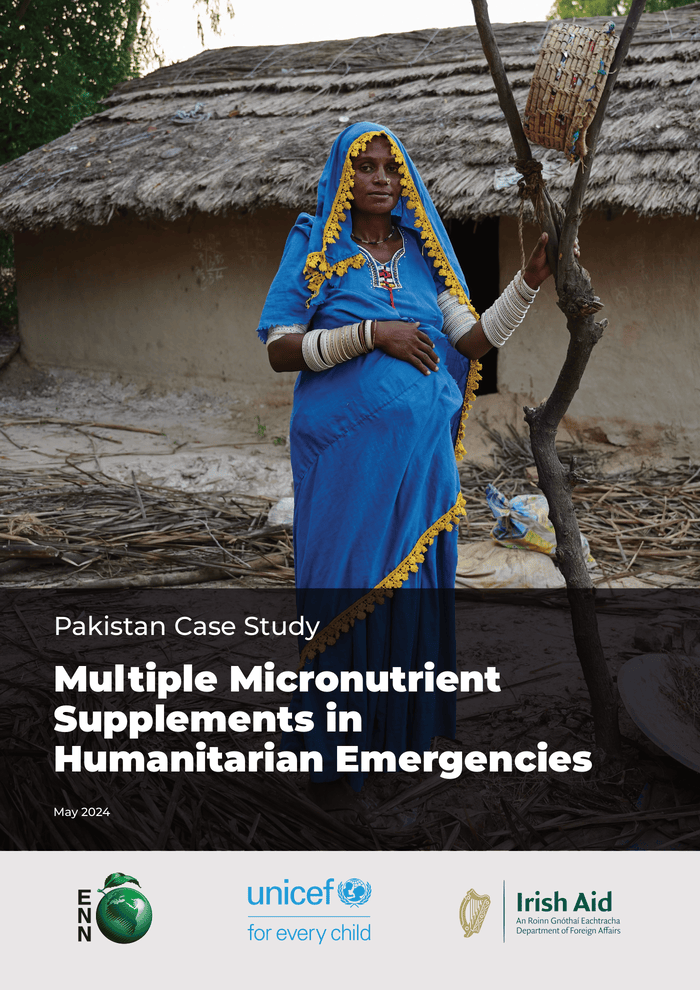Authors: Kate Sadler, Philip James, Amir Samnani, Emily Mates
executive summary
Pakistan, the world’s fifth most populous country, has made progress in recent years in reducing poverty and mortality rates, and increasing primary school enrolment and immunisation rates. However, persistent challenges such as population growth and underdevelopment are exacerbated by frequent emergencies related to food insecurity, climate change and the recent COVID-19 pandemic. In 2022, severe monsoons affected more than 33 million people, leaving 20.6 million people (including 9.6 million children) in need of humanitarian assistance. Heavy rains also fell in the southwest of the country in 2022, causing flash floods, deaths and damage to infrastructure, further increasing vulnerabilities. Gender inequality, exceptionally high fertility rates (especially among the poorest wealthy) and limited access to basic services further impact child and maternal nutrition and mortality outcomes.
In Pakistan, multiple micronutrient supplement (MMS) programs are in their infancy, but a strong enabling environment is now shaping the political, institutional and policy processes towards improving maternal nutrition. Pakistan’s Maternal Nutrition Strategy 2022-2027 aims to protect and promote diets, practices and services that support optimal nutrition, health and well-being for all women. Provision of MMS is a core intervention outlined in the strategy, which includes a goal of reaching 50% of all women with MMS programs by the end of 2027.
As part of Pakistan’s health and nutrition services, all MMS programs are overseen by the Ministry of National Health Services, Regulation and Coordination (MoNHSR&C). To date, several organizations, including UNICEF, Nutritional International, the Bill & Melinda Gates Foundation, and a number of implementing partners, have supported MoNHSR&C in implementing MMS as part of its broader maternal nutrition programming. MMS programs in districts experiencing humanitarian emergencies have traditionally been delivered through routine antenatal care (ANC) services and as a separate emergency response.
A regular ANC programme, implemented through the country’s health services and supported by UNICEF, Nutrition International and other implementing partners, provided MMS in some of the flood-affected districts and in federation councils (spread across multiple districts) at high risk of polio. Enough MMS to cover 500,000 pregnant women was procured and distributed. Ongoing support for the regular ANC programme extended to linking humanitarian responses with longer-term maternal and child nutrition programmes.
As part of the emergency flood response in two provinces (Sindh and Balochistan), distribution of MMS began in early 2023. Kirk Humanitarian donated enough MMS to cover 2.2 million pregnant women. More than half of this donation was initially distributed through a small pilot study in seven districts and then distributed through Pakistan’s National Disaster Management Association (NDMA) as part of the emergency response. This MMS distribution was organized by the provincial-level health departments to all pregnant women without being integrated into the ANC platform. However, it was later agreed that the remaining supply (enough MMS to cover 1 million pregnant women) would be provided through the MoNHSR&C so that standard protocols for MMS programming could be followed within the ANC services.
Key lessons for MMS programs across settings in Pakistan have emerged from the emergency distribution of MMS and the implementation research study. The challenge now is to translate the momentum of the MMS program into policies and strategies, ensuring that any lessons learned are incorporated into updated program guidance, as well as ensuring that it is effectively delivered within ANC programs across a complex and decentralized health system. This is a real opportunity to improve the quality and coverage of, and demand for, ANC services, and Pakistani stakeholders have identified key priorities to support this. Resource mobilization is crucial and mechanisms such as nutrition matching funds and emergency donor support should be leveraged. Integrating the MMS program into existing health systems will require the development of clear guidance and capacity building for health workers (both facility-based and community-based) to support the switch from iron-folic acid to MMS. The inclusion of MMS on the National Essential Medicines List, achieved in December 2023, should assist procurement, financing, and supply management, and key informants are hopeful that initial exploration of local MMS production may begin to bring down the cost of the product.
Through collaborative efforts and strategic prioritization, Pakistan can continue to strengthen and expand ANC services, including MMS programs, thereby positively impacting the nutritional status of women and their children across diverse regions of the country.
“Key learnings about the MMS program in Pakistan are emerging from the emergency distribution of MMS and implementation studies. The challenge now is to translate the momentum of the MMS program into policy and strategy.”

